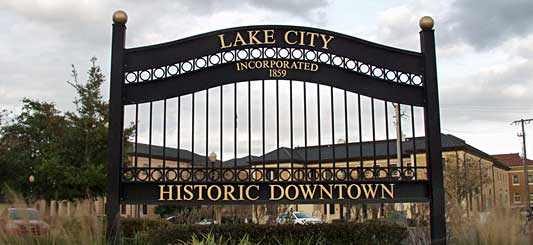Richard Corcoran: Why (CRAs) Community Redevelopment Agencies Have to Go
Posted August 17, 2017 02:30 am | Op-Ed
A mayor who received $84,529 from a side job paid for by taxpayers. A grand jury report stating that government officials were “spending large amounts of taxpayer dollars on what appeared to be pet projects of elected officials.” An inspector general’s report finding over $2 million in questionable expenditures and political cronyism involving a city commissioner. And finally, millions of taxpayer dollars spent and a new FBI investigation under way.

Graphic by the Observer: see ...
A $2,000 Per Business Giveaway Without the Details
If all of this sounds like a John Grisham novel waiting to happen, you’d be right. But unfortunately all of the above is not fiction. It’s all true and sadly, I believe, just the tip of the iceberg.
Have you ever heard of Community Redevelopment Agencies, or CRAs?
Wait! Before you stop reading, hear me out.
I’ll bet you didn’t know — and why would you — that there are more than 1,600 local agencies, boards and special districts that have the power to incur debt and operate under very little scrutiny whatsoever.
Of the 1,682 such groups, 224 of those are CRAs.
So first: what exactly is a CRA?
The Community Redevelopment Act authorized counties and municipalities to create community redevelopment agencies as a means of redeveloping “slums” and “blighted areas.” By definition, these areas must have at least two factors to qualify. Some of these factors include unsanitary conditions; defective street layout, roadways or bridges; higher fire and emergency calls; and a host of other problems.
Attempting to remove blight and rescue slums are admirable goals, for sure. Unfortunately, as the saying goes, the road to hell is paved with good intentions. And if that road to hell is within the boundaries of the CRA, chances are it wouldn’t get paved unless you happen to be friends with a board member.
Seem far-fetched? Unfortunately, it isn’t.
A Miami-Dade grand jury report in 2016 said that the CRA appears to be a fund for pet projects for elected officials and is flirting with “slush fund” status.
Head north to Brevard County where Rep. Randy Fine, R-Palm Bay, and former Rep. John Tobia, R-Melbourne Beach, exposed a scandal so brazen it put to rest any lingering doubts about the wisdom of eliminating CRAs. Records indicate the mayor of Palm Shores hired herself to administer a local CRA for over 5 years — collecting $84,529. Of course, paid for by the taxpayer.
And what political scandal would be complete without a capital city connection. In Tallahassee, the CRA and local developers have come under investigation by the FBI.
What makes it all the more ridiculous is that the CRAs are usually miniature versions of county or city commissions.
As a matter of fact, 76 percent of CRAs are governed by a board that mirrors or is very similar to the local government that oversees the CRA.
Shockingly, in a recent survey, 72 percent of CRAs indicated they are exclusively staffed by local elected officials and only 27 percent of CRA’s have private citizens on their board.
Like “Mini Me” from the Austin Powers movies, the offspring magnifies any tendencies of the creator. But the composition of the boards represent just one of the problems.
Statewide, in 2015 CRAs reported almost $600 million in revenue, $605 million in expenditures and $715 million in debt. Also, between 2005 and 2016, CRAs issued $1.35 billion in bonds. We literally cannot afford CRAs.
Fortunately, the Florida House attacked the problem last session with HB 13 and will take it on again this session. We sincerely hope the Florida Senate will join us this time.
The legislation is pure common sense. It requires board members to undergo ethics training, CRAs to use the same procurement and purchasing processes as the county or municipality, expansion of the annual reporting requirement to include audit information and performance data, introduction of oversight into the budget process, and finally that CRA data be included in the county and municipality annual financial report — just to name a few.
It also would have prohibited the creation of any new CRAs after October and phased out nearly all CRAs by 2037.
Many will undoubtedly say that this is just part and parcel of an attack on local government.
That’s just government blame shifting.
What it is instead is part and parcel of an attack on corruption and on those who would pass the buck with one hand and pass the plate with the other.
---------
Richard Corcoran is Speaker of the Florida House of Representatives. Column courtesy of Florida Politics.
Graphic added by the Observer: Observer photo; Lake City's Historic District is a CRA
This piece was reprinted by the Columbia County Observer with permission or license.

 By Richard Corcoran
By Richard Corcoran